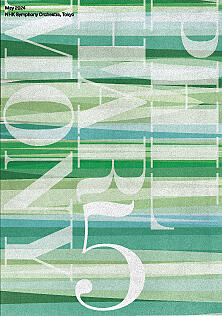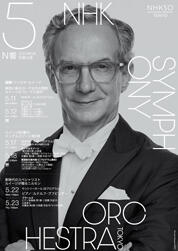- Home
- Concerts
- Subscription Concerts 2023-2024
- Program C
- No. 2011 Subscription (Program C)
Subscription Concerts 2023-2024Program C
No. 2011 Subscription (Program C)
NHK Hall
Google Map Seating Chart
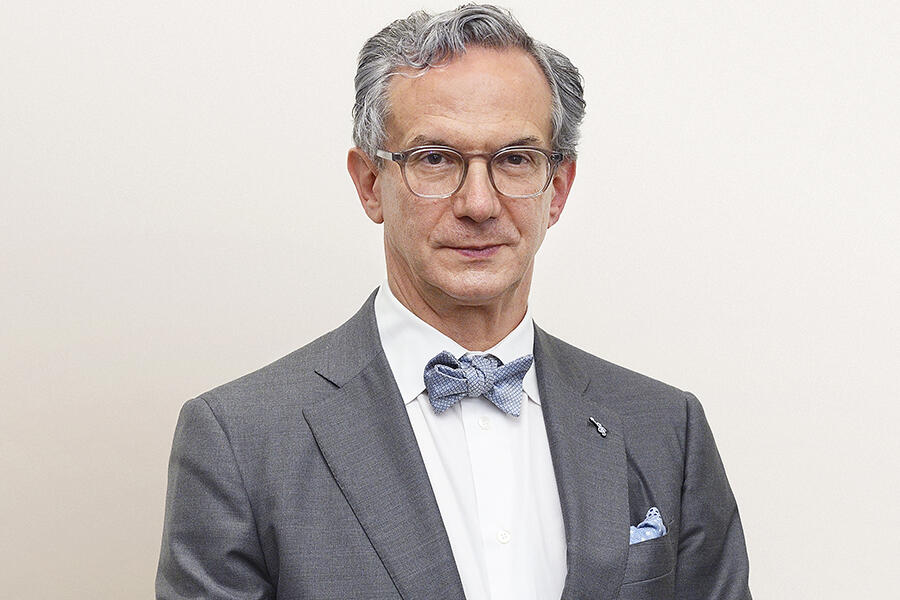
Program
Mendelssohn / A Midsummer Night’s Dream —Overture, Nocturne, Scherzo, Wedding March
The German-Romantic musician Felix Mendelssohn-Bartholdy (1809–1847) was a gifted composer, pianist, organist, conductor and educator. To crown it all, he was well versed in every world of study and art. Besides his talent for painting, the cultured multilinguist developed his interest in literature during his childhood and youth. One of his favorite authors was William Shakespeare whose A Midsummer Night’s Dream inspired the seventeen-year-old composer to pen the concert overture in 1826. Seventeen years later, he would reuse it to compose incidental music for the entire comedy for a production in Potsdam.
The five-act comedy mainly takes place in a forest in an Athens suburb. The mortal young couple Hermia and Lysander, pursued by Demetrius (Hermia’s fiancé) and Helena, reach the night forest. There, mortal tradesmen including Bottom get together, whereas Oberon (King of the Fairies) and Titania (Queen of the Fairies) are quarreling. Puck, Oberon’s henchman, puts a magical love portion on Titania’s eyelids so she falls in love with Bottom – whose head is, by Puck’s prank, that of a donkey. Puck also applies the portion on Lysander’s and Demetrius’ eyelids so both love Helena, which throws the quartet into chaos. Oberon and Titania reconciles, every spell except Demetrius’ is broken: the triple weddings of the two mortal couples and of Theseus (Duke of Athens) and Hippolyta (Queen of the Amazons) are celebrated.
Mendelssohn’s Overture in sonata form is a perfect musical digest of the Bard’s comedy. Prefatory four chords invite us to a magical world straight away, followed by the strings giving the nimble first theme to evoke fairies moving around. The mellifluous second theme represents the mortal lovers, we then hear Bottom’s hee-haws foretelling the silliest happening of the comedy. Nocturne, opening with a horn tune backed by bassoons, illustrates the four lovers slumbering peacefully in the forest, while the lilting Scherzo depicts mischievous Puck and the fairy world. The universally celebrated trumpet fanfare commences Wedding March in splendid C major, which is the entr’acte music preceding the fifth marriage act.
[Kumiko Nishi]
Mendelssohn / Symphony No. 5 D Minor Op. 107, Reformation
Moses Mendelssohn (1729–1786), Felix Mendelssohn-Bartholdy (1809–1847) ’s grandfather, was the renowned Jewish thinker of the German Enlightenment. Of Moses’ children, two kept the Jewish religion and four, including Felix’s father, became Christians. Of Jewish origin, Felix was baptized a Protestant in 1816 at age 7, six years earlier than his parents’ conversion to the same church.
Felix Mendelssohn’s No. 5 – the symphony he wrote before the Scottish and the Italian, the number 5 being due to the publication order – is connected to his faith. He began to compose it in late 1829 expecting it to be performed at the Berlin celebrations (June 1830) marking the tercentenary of the Presentation of the Augsburg Confession, the pivotal document for the Reformation. It turned out, however, the premiere at the celebrations couldn’t happen. As to the reason, some say it was because the composer was Jewish, others say the work was too modern. In all cases, he delayed in completing it (May 1830) because of his ill-health. Also notable is the “revival” performance in March 1829 of J. S. Bach’s St Matthew Passion under Mendelssohn’s initiative and baton. He studied the Lutheran Baroque master’s music especially intensively for some years prior to this historic concert.
No. 5 is cast in four movements. The slow D-major introduction is said to suggest Catholicism with the imitative writing in the style of the Renaissance Italian composer Palestrina and the “Dresden Amen, ” an ascending seven-note melody originally composed for the Catholic Royal Chapel in Dresden in the late 1700s. The ensuing main sonata section in D minor is grave, if not tragic. The next movement is a refined scherzo (or minuet) in ABA form, while the slow third movement evokes a Baroque aria. Then without pause, the finale’s slow introduction starts with the flute solo quoting the Protestant chorale Ein feste Burg ist unser Gott (A Mighty Fortress is Our God) written by Martin Luther (who was a flutist as well). The main sonata section – contrapuntal at times – will be triumphantly closed with the orchestra singing the chorale all together.
[Kumiko Nishi]
*This concert will have a duration of 60 to 80 minutes without an interval.
Artists
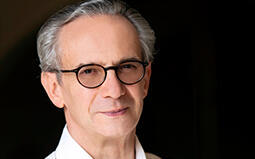 ConductorFabio Luisi
ConductorFabio Luisi
Fabio Luisi hails from Genoa. He is the Principal Conductor of the Danish National Symphony Orchestra and the Music Director of the Dallas Symphony Orchestra. He first conducted the NHK Symphony Orchestra in 2001, and in September 2022 he became Chief Conductor of the orchestra. He conducted Verdi’s Requiem in the concert to celebrate his appointment, and Mahler’s Symphonie der Tausend to commemorate the orchestra’s 2000th subscription concert in December 2023. These two monumental performances have brought him great success. He has presented works of German and Austrian composers such as Beethoven, Brahms, Bruckner and R. Strauss as well as those of Franck and Saint-Saëns, Francophone composers, and with his conducting style full of passion and poetic sentiment, has captured the hearts of many of audience members. In August 2023, his tenure as Chief Conductor was extended by three years until August 2028.
He was General Music Director of the Opernhaus Zürich, Principal Conductor of the Metropolitan Opera in New York, Principal Conductor of the Wiener Symphoniker, as well as General Music Director of the Staatskapelle Dresden and the Sächsische Staatsoper, Artistic Director and Principal Conductor of the MDR Sinfonieorchester Leipzig, Music Director of the Orchestre de la Suisse Romande and Chief Conductor of the Tonkünstler Orchester. He is Music Director of the Festival della Valle d’Itria in Martina Franca (Apulia) and has appeared as guest conductor with numerous renowned ensembles, including the Philadelphia Orchestra, the Cleveland Orchestra, the Münchener Philharmoniker, the Filarmonica della Scala, the London Symphony Orchestra, the Royal Concertgebouw Orchestra, and the Saito Kinen Orchestra, while also conducting operas at world’s major opera houses. Important recordings include Verdi, Bellini, Schumann, Berlioz, Rachmaninov, Rimsky-Korsakov, Frank Martin, and Franz Schmidt, the largely forgotten Austrian composer. In addition, he has recorded various symphonic poems by Richard Strauss, and a lauded reading of Bruckner’s Symphony No. 9 with the Staatskapelle Dresden. His recordings of Wagner’s Siegfried and Götterdämmerung with the Metropolitan Opera won Grammy awards.
Pre-concert Chamber Music Performance
Pre-concert Chamber Music Performance
Program:Ravel (Takeshima) / Ma mère l’Oye, suite (Mother Goose)
Artists
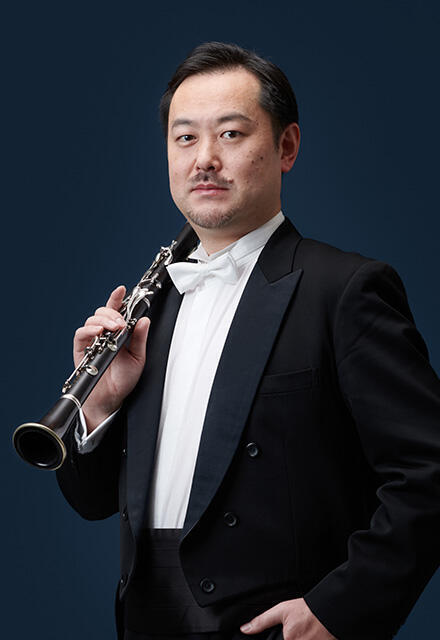
Kei Ito
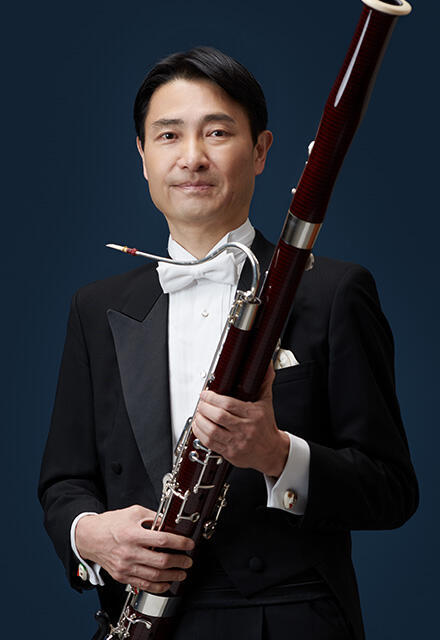
Kazusa Mizutani
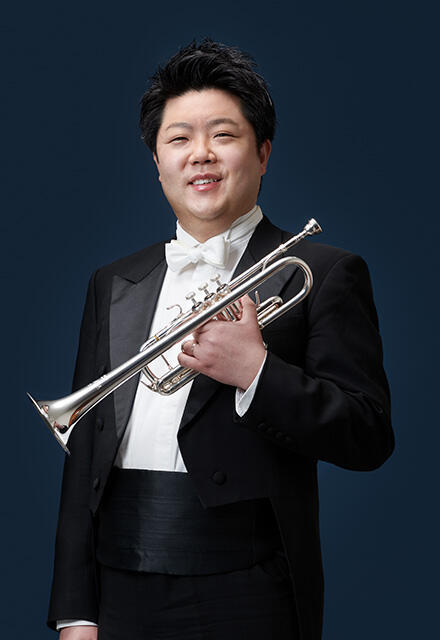
Tomoyuki Hasegawa
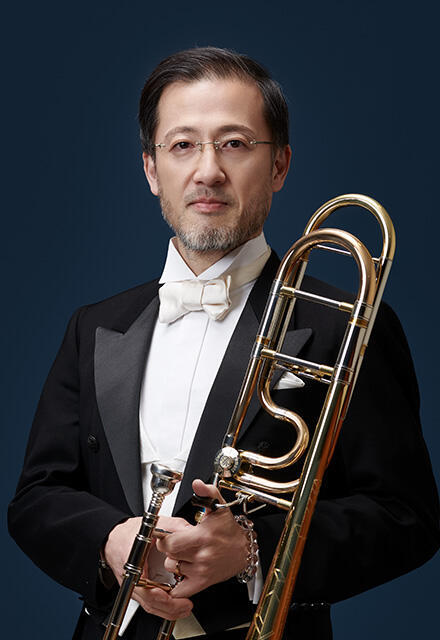
Mikio Nitta
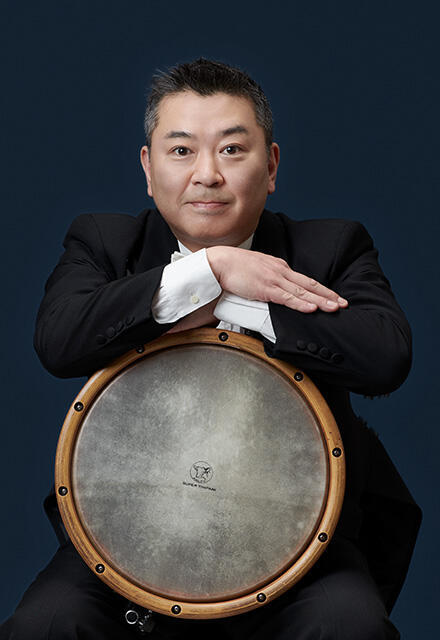
Satoshi Takeshima
Download
Ticket
Program C
No. 2011 Subscription (Program C)
NHK Hall
Google Map
Seating Chart
Single Tickets Release Date
Pre-sales for Subscribers:Wednesday, February 28, 2024
*about subscribers
Sale to General Public:Sunday, March 3, 2024
Price
| S | A | B | C | D | E | |
|---|---|---|---|---|---|---|
| Ordinary Ticket | 7,600 | 6,700 | 5,300 | 4,300 | 3,300 | 1,600 |
| Youth Ticket | 3,500 | 3,000 | 2,400 | 1,900 | 1,400 | 800 |
Seating chart Enlarge Print PDF
*tax included
*Subscribers receive a 10% discount (Available at NHKSO WEB Ticket and N-Kyo Guide)
*For wheelchair-accessible seats, please refer to the N-Kyo Guide
Youth Tickets
Youth Tickets are great options for those of 25 years old and younger
Subscription tickets
Release Date
ANNUAL SUBSCRIPTION TICKETS
Mon., July 17, 2023 10:00am
[For Subscribers: Sun., July 9, 2023 10:00am]
SEASONAL SUBSCRIPTION TICKETS (SPRING)
Fri., February 16, 2024 10:00am
[For Subscribers: Wed., February 7, 2024 10:00am]
For further information and
subscription application
Other Ticket Agents
Broadcast
 NHK-FMNo. 2011 Subscription (Program C)
NHK-FMNo. 2011 Subscription (Program C)
Friday, May 17, 2024 7:30PM - 9:10PM
Program:
Mendelssohn / A Midsummer Night’s Dream —Overture, Nocturne, Scherzo, Wedding March
Mendelssohn / Symphony No. 5 D Minor Op. 107, Reformation
*This concert will have a duration of 60 to 80 minutes without an interval.
Conductor:Fabio Luisi
Recorded:May 17, 2024 NHK Hall
*Repertoire, conductor, soloists and program order are subject to change without notice.
*Pre-school children are not allowed in the concert hall

